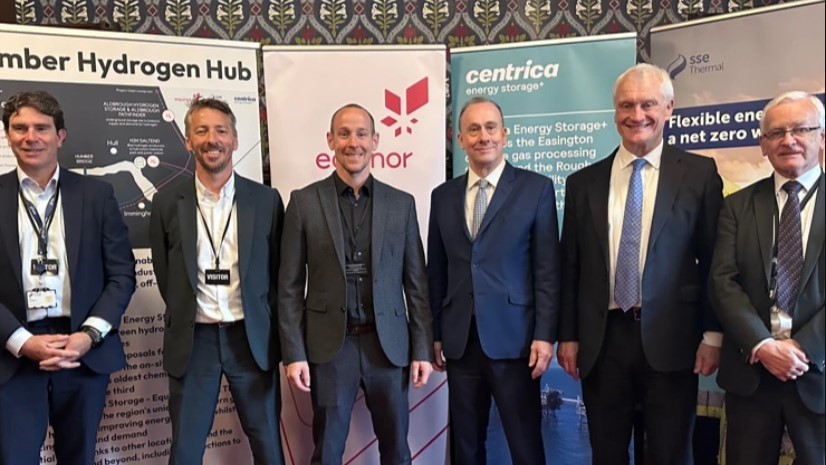Three of the UK’s biggest energy firms have come together in Parliament to launch plans for a low carbon hydrogen hub.
Representatives from Equinor, Centrica and SSE Thermal revealed the plans in the Houses of Parliament to an audience of MPs, civil servants, industry bodies and other stakeholders.
The project, named H2H Easington, includes proposals to develop a multi-stage green and blue hydrogen production facility, which will grow over time as the hydrogen economy does. Additionally, proposals for a green hydrogen electrolyser have been submitted to the government as part of the second Hydrogen Allocation Round process.
The partnership will also explore the possibility of a dedicated pipeline linking H2H Easington to Equinor’s proposed H2H Saltend hydrogen production facility, as well as Equinor and SSE Thermal’s proposed hydrogen storage facility in East Yorkshire. These projects together form the Humber Hydrogen Hub.
Graham Stuart MP, member of parliament for Beverley and Holderness said: “This is an exciting collection of projects which can help to deliver on the UK’s net zero goals and hydrogen targets whilst also supporting the Government’s levelling up agenda. I’m particularly proud to have such key strategic energy sites within my constituency that are attracting investment from large companies, creating new jobs for local people and supply chain opportunities for local businesses. It shows that East Yorkshire is an internationally renowned location for low carbon technologies, and this can only help to boost prosperity across the region.”
Dan Sadler, director for hydrogen at Equinor’s UK Low Carbon Solutions, said: “The proposals we’ve set out today demonstrate the commitment to the decarbonisation of the Humber by three of the largest players in UK energy, each with a track record of delivering ambitious schemes that reflect the changing demands of our economy.
“This is a unique opportunity to link these key sites in the Humber, pairing hydrogen production with users and storage sites to create the foundational requirements for an expanding hydrogen economy throughout the 2030s and 40s. It will help to reduce emissions whilst also stimulating economic growth.”
Hydrogen in the UK
This is far from the first major hydrogen project in development in the UK. GreenPower was recently granted planning permission to develop its Argyll Hydrogen Hub on the west coast of Scotland, a project set to support the decarbonisation of the local Glenshellach Industrial Estate.
Meanwhile, RWE has been developing plans for a green hydrogen facility in Pembroke, Wales, that will produce around two tonnes of hydrogen per hour. In England, a hydrogen electrolyser facility was recently granted planning consent in Bradford.
However, concerns about the infrastructure required to transport hydrogen economically have been raised. Speaking at Solar Media’s Green Hydrogen Summit EU 2024, Alejandra Pérez-Plá, regional manager – Mediterranean at financial advisory firm Global Capital Finance, declared the issue “a chicken and egg problem”, noting that while the facilities to produce green hydrogen are strong, there is a lack of economically viable infrastructure to transport it.






